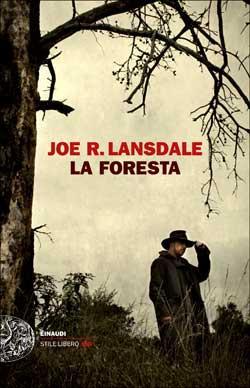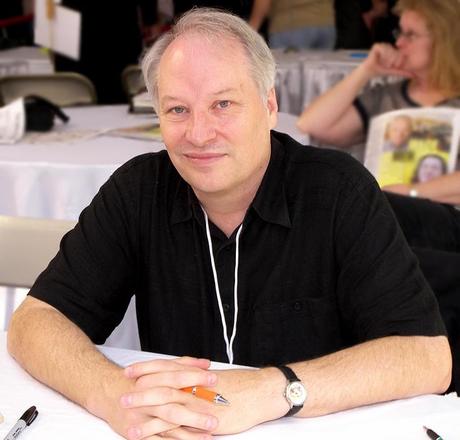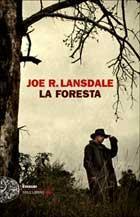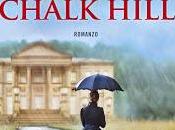 Il nuovo ospite di “L’autore straniero racconta il libro” è lo scrittore americano Joe. R. Landsdale, molto noto anche per i romanzi del ciclo di Hap & Leonard
Il nuovo ospite di “L’autore straniero racconta il libro” è lo scrittore americano Joe. R. Landsdale, molto noto anche per i romanzi del ciclo di Hap & Leonard
Joe R. Landsdale ha scritto a Letteratitudine per raccontarci qualcosa di se stesso, della sua infanzia e di ciò che lo ha portato alla scrittura di “La foresta”: romanzo western appena edito da Einaudi Stile Libero (tradotto da Luca Brioschi).
Ringraziamo Joe per il contributo che ci ha inviato e per la nota di chiusura specificamente dedicata alle lettrici e ai lettori italiani. Di seguito, il pezzo tradotto in italiano e la versione in lingua originale.
Thanks a lot, Joe!
P.s. Nelle precedenti puntate abbiamo ospitato: Glenn Cooper e Ildefonso Falcones
* * *
Joe Lansdale racconta di se stesso e delle storie che hanno ispirato il suo romanzo “La foresta”

Sono cresciuto con i film western. Negli anni Cinquanta e Sessanta ce n’erano a bizzeffe nelle sale e in televisione. Gunsmoke, Have Gun Will Travel, Rawhide, Cheyenne, Maverick e tanti altri. Anche i racconti sul west narrati da mio padre e mia madre, esercitarono su di me una grande influenza. I miei erano già piuttosto anziani quando nacqui, e le loro esperienze erano diverse da quelle vissute dai genitori dei miei amici.
Mia nonna, che morì nel 1980 a quasi cento anni, quand’era bambina aveva visto Buffalo Bill e lo ricordava benissimo. Aveva viaggiato lungo il Texas sopra un carro. Se la memoria non mi inganna, era in un gruppo coinvolto nella corsa per l’accaparramento delle terre in Oklahoma, ma che poi si diresse in Texas. Mia nonna ha visto accampamenti indiani, ha assistito a scontri con animali selvatici e, come mio padre e mia madre, aveva parenti che avevano combattuto nella guerra civile. Mio nonno era un commerciante di cavalli e aveva due famiglie, una su ciascun lato dell’Ozarks. Nessuna di esse fu a conoscenza dell’esistenza dell’altra fino al 1970, quando conoscemmo la sorellastra di mia madre, che era quasi spiccicata a mia madre. Be’, questa è già una storia.
La mia era una famiglia di narratori. Tra i miei ricordi più belli, c’è questo: sono tutti seduti sotto un albero a raccontare storie, e io lì ad ascoltare, a godermi quei racconti che mi entravano dentro come buona pioggia su un terreno morbido. E continuano a scavarmi dentro ancora oggi.
Ricordo storie riguardanti famosi fuorilegge che i miei familiari avevano ascoltato da qualche parte e poi condiviso con me; e ancora, storie di vita di campagna e di vicende quotidiane. Mentre gli altri bambini andavano a caccia di lucciole, io tornavo sempre lì, a sedermi sotto l’albero, per ascoltare. Mi piaceva molto di più dei tipici giochi d’infanzia e… ragazzi, sono felice di averlo fatto. Ci ho costruito la mia vita, su quelle storie.
Più tardi, negli anni Settanta, cominciai a interessarmi alla letteratura western (non più solo film e storie orali). Prima di allora avevo letto ogni tipo di romanzi, ma poca narrativa western. Oggi non è cambiato granché. Quando trovo qualcosa che mi piace, ci esco pazzo; altrimenti rimango del tutto indifferente. Ho letto “The Shootist” di Glendon Swarthout, “True Grit” di Charles Portis, “Little Big Man” di Thomas Berger, “Last Reveille” di David Morrell, e un romanzo molto sottovalutato: “The White Buffalo” di Richard Sayles. Ho letto anche “Wild Times” di Brian Garfield, “Lonesome Dove” di Larry McMurtry , e certamente il romanzo di Alan Le May “The Searchers”. C’è un po’ di Twain, lì dentro. Del resto Twain perseguita anche me, come un buon fantasma, nelle tante cose che scrivo.
Con riferimento a questo mio nuovo romanzo, posso dirvi che desideravo raccontare una storia nello stesso modo in cui la raccontavano i miei: con ritmo, dettagli e divagazioni interessanti. C’è un miscuglio di avventura e azione, alla base di “La foresta”.
Scrivere questo romanzo è stato come dare sfogo a un urlo primordiale. Spero che vi piacerà leggerlo.
Vorrei soffermarmi un attimo per dedicare un pensiero a tutti i miei lettori italiani e ringraziarli per il loro interesse. Lo apprezzo tanto. Avete dimostrato di essere lettori forti e di seguire con passione il mio lavoro. E di amare i libri in generale. So per certo che siete lettori di gran lunga più attenti di quelli del mio paese. È una cosa che ammiro molto. Spero che possiate continuare ad amare i libri in siffatto modo. Un buon libro è un’esperienza meravigliosa, e io sono davvero felice che tanti di voi abbiano apprezzato le esperienze vissute leggendo i miei romanzi. Spero possa essere così anche nel futuro.
(traduzione di Massimo Maugeri)
(Riproduzione riservata)
* * *
Joe R. Lansdale tells about himself and the Stories that Inspired The Thicket
I grew up on Western movies and films. In the fifties and sixties they were as thick at the theater and on television as fleas on a stray dog. Gunsmoke, Have Gun Will Travel, Rawhide, Cheyenne, Maverick, and so many others. Another big influence were the stories my father and mother told about the Western era; they were older parents when I was born, so their experiences were different than the parents of my friends.

My family were storytellers, and one of my fondest memories was them sitting under a tree telling stories, and me soaking it all up like soft ground under a good rain. I’m still mining those stories. There were also tales about famous outlaws they had heard and passed on to me, about country living, and day to day business. While the other kids chased fireflies, I kept coming back to sit under the tree and listen. I loved it far more then childish games, and boy, am I glad I did. I’ve made a living at it.
Later, in the seventies, I became interested in Western fiction, not just films, stories, and history. Before that, I read all manner of fiction, but very little Western fiction, and most of what I had read didn’t move me. I am still that way about Western fiction. When I like it I’m absolutely bonkers for it, but when I don’t, it leaves me as cold as a polar bear’s toes. I read The Shootist by Glendon Swarthout, True Grit by Charles Portis, Little Big Man by Thomas Berger, Last Reveille by David Morrell, and a very underrated novel, The White Buffalo by Richard Sayles. Later I read Wild Times by Brian Garfield, Lonesome Dove by Larry McMurtry, and certainly Alan Le May’s novel, The Searchers. I suppose Twain had something to do with it, as he haunts me like a happy ghost in so many things I write. But it was my main intention to tell a story the way my folks told stories, with pacing and detail and interesting asides. Toss in adventure and action, and you have all of the influences for The Thicket.

I wanted to take a brief moment to think all my Italian readers for their dedication. It is appreciated. You have proven to be strong readers and carry and interesting point of view about my work, and books in general. I hear often that Italians don’t from Italians, but I know for a fact that you are far more dedicated readers than those in my country, which is beloved by me. I hope those of you who are dedicated to books continue to be so. A good book is a marvelous experience, and I am so glad that so many of you have liked the experiences you have had reading my books. I hope for and respect your continued readership.
Joe R. Lansdale
* * *
(Riproduzione riservata)
© Joe R. Lansdale







